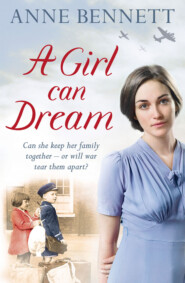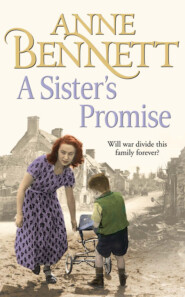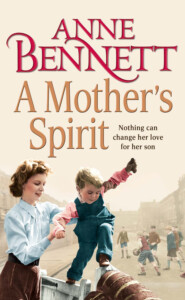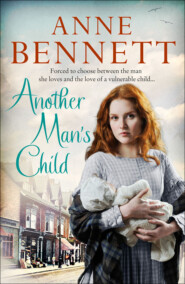По всем вопросам обращайтесь на: info@litportal.ru
(©) 2003-2024.
✖
A Little Learning
Автор
Год написания книги
2019
Настройки чтения
Размер шрифта
Высота строк
Поля
‘No,’ Betty cried. ‘Six years is a long time. Women won’t just give up and go back to the kitchen sink. Things will have to change. Miss Wentworth was even telling me that married women will soon be officially allowed to teach. I mean, they did in the war, because they had to, and then they expected them to go back to their husbands. Only some didn’t want to, and some of the poor souls didn’t have husbands any more, but they still had a family to bring up.’
‘It’s this Miss Wentworth who’s filled your head with such nonsense,’ Bert said stubbornly.
Betty knew he had a point, for she had listened to the teacher and to her vision of the new, emerging Britain, where women could take their rightful place alongside men.
‘Women like your Janet, Mrs Travers,’ she said. ‘Intelligent women. The time will come when men and women will work side by side, and that will include married women. Even when they have children, they will be going back to work. It will eventually change the face of the world.’
Betty had kept quiet. She didn’t say that women had been working for years and working bloody hard and yet it had changed nothing. Sarah McClusky, her own mother, had worked from dawn till dusk and for a pittance. They’d lived in Summer Lane then, the bottom end of Edgbaston. The houses were back to back with dilapidated roofs and walls, crowded around a central courtyard which housed the shared lavatory and brew’us, where the washing was done, and where the tap was that served the whole yard. Betty remembered the stench from the small industries and workshops that abounded in the area that made the atmosphere smoky and gloomy and dirty as it discharged its gases into the air to mix with the smoke from thousands of back to back house chimneys.
Betty looked at Claire Wentworth and realised she didn’t know the half of it, not her Janet either; she hoped her children would never know poverty like there was then. It was the threat of that that made her mother trudge across to the other side of Edgbaston to clean the homes of the gentry. Winter or summer, and often the only thing to protect her from the elements was a shawl, and the well cobbled boots on her feet might have cardboard inside them to try to keep the wet out of the soles worn through.
All day she would clean and return home weary and bone tired to a meal Betty would have to have made after her day at school. It was her job, as the elder girl, to clean and cook as best she could and, with her elder brother Conner, give an eye to the little’uns Brendan, Breda and Noel. Twice a week Sarah would bring home a large laundry basket covered with a sheet, and Betty would know her mother would be in the brew’us all the rest of the next day washing for her employers.
It was no mean feat to wash clothes then, even for a family, and yet Sarah wasn’t the only woman to take on extra. She would creep from her bed at five the next morning and poke Betty awake as she slept in the attic in the bed with her younger sister. Bleary eyed, Betty would stumble after her mother in clothes hastily fastened around her and her feet in the boots given free to the poor children by the Daily Mail. In her hand she would carry a bucket of slack to light the copper, and inside the brew’us her mother would be filling it up bucket by bucket from a tap in the yard. Betty would begin to maid, or pound, the clothes in a dolly tub and then scrub at the offending stains. At some point her mother would take over and Betty would return to the house to wake and feed her brothers and sisters and her father too.
In the brew’us, Sarah would boil all the washing in the copper and then swill the whites in a bucket tinged with Reckett’s Blue before starching. When the children returned at dinnertime, to bread and dripping they made themselves, Sarah would be mangling the clothes, and if the day had been fine and dry, by hometime she was ironing the lot with a flat iron heated in the fire, for the clothes would have dried on the lines that criss-crossed the yard. If however it was wet, the clothes would be strung above the fire and around the hearth, and the house would be cold and smell of damp washing.
But no one complained, for the washing Sarah took in to supplement her cleaning paid the rent and put food in hungry children’s bellies. Even Sean who was often unable to provide for his family said little, and in actual fact, Sarah’s job didn’t disturb him much at all and as long as his own laundry was always done, his dinner always on the table, the fire kept up and the children seen to, he didn’t moan much. The house might have got a lick and a promise rather than a good going-over, the stove might not have been blackleaded every week, nor the brass polished, nor the step scrubbed, but those were things the men didn’t notice.
Until the slump, Sean McClusky had been employed at Henry Wiggins and Co in Wiggin Street which produced nickel and steel plate, but as the depression bit deeper, he was just put on short time and then out of work altogether; it was her mother who then put food on the table, Betty remembered. Yet her father would never do a hand’s turn in the house and it hadn’t seemed strange. Without work, he would loll on street corners with mates in the same situation, or sit listlessly in front of the fire for which his wife’s money had bought the coal.
Miss Wentworth painted a view of life Betty didn’t understand, or quite believe in. Her own jobs, like her mother’s, had been chosen to fit in with Bert and the children.
In time life had become easier for the McClusky family. Betty married Bert which was no surprise to anyone, and the family moved from Summer Lane to the new sprawling council estate of Pype Hayes, north of the city, where Betty in time was also given a house. Money was easier as the younger McCluskys were all at work, and Sean got a job making tyres at Fort Dunlop in 1937. Then war was declared. Bert Travers was called up, along with his brothers-in-law Conner and Brendan, while Noel volunteered and Breda went to work in the munitions.
‘Come on, our Bet, the money is desperate, so it is,’ she’d urged her sister, but Betty had shaken her head.
The years had been hard on her parents and she thought she couldn’t leave them in charge of Duncan and Janet all day, whatever the lure of the money. Breda soon sported the uniform turban like all the rest of the factory girls, wore scarlet lipstick and smoked strong-smelling cigarettes. Her language, Betty noticed, was pretty strong too. She’d have had her lugs scalped if she’d tried such talk, she told her sister.
‘Da says that and worse,’ Breda had protested.
‘That’s different, he’s a man.’
Then Breda had laughed. ‘I think you can give yourself a pat on the back for noticing that, Bet, for I’d never have worked it out on my own.’
But Betty’s attitude changed when her youngest brother, Noel, was killed in the first year of the war. He was just eighteen years old. Betty thought she’d never get over it, and yet she had to cope because her parents were bowed down with grief. Eventually, anger at the waste of Noel’s life replaced the sadness, and this anger was further fuelled by the blitz of Birmingham that began on 25 August 1940.
When Tyburn Road was targeted the following evening, it was dangerously close to her Pype Hayes home, threatening her family. She decided that knitting balaclavas and cowering at home was no longer good enough for her. ‘I need to do something, Mammy,’ she appealed to her mother, ‘or I’ll feel Noel has died in vain. But I can’t do it without your help.’
Sarah McClusky had no wish to see another of her children exposed to danger, but she knew it was Betty’s way of dealing with her brother’s death. She took a deep breath to steady her own fear and said firmly, ‘The weans will be as right as rain with us. Dad has the shelter that cosy, with bunks fixed to the sides and the oil heater to take the chill off, and they’ll be as safe as houses.’
Betty was grateful, for she knew what it had cost her mother to react the way she did. The following day she joined up as an ARP warden.
It soon became apparent that Birmingham was ill equipped to deal with the casualties of the bombing raids, which were intensifying throughout the city. The job of the wardens included trying to arrange temporary accommodation of some sort for the homeless, plus clothes, bedding and food.
People taking shelter where they could often did not get any aid for hours, and there were some disorderly scenes among the desperate and often destitute people. In an effort to help the situation, mobile canteens were set up, and Betty elected to serve in one of these, together with her fellow ARP warden and friend Cynthia, who was the driver.
On the night of 19 November 1940, the sirens had not even died away when the first thuds were heard. Sarah McClusky felt her stomach tighten in fear as she watched her daughter struggle into her coat. She knew Betty had to go, and hoped the raid would be over soon, but she had to look after Duncan and Janet, so she began hurriedly to pack a bag to take down to the shelter. ‘Take care, lass,’ she said to Betty as she was about to leave.
‘I will, Mammy,’ Betty said. There was a sudden explosion very close and she went on quickly, ‘Don’t worry about me, Mammy, I’ll be fine, but get the children and yourselves down to the shelter quick.’ She gave her mother and children a kiss. ‘See you in the morning.’
It was a long raid and a bad one. The ack-ack guns were at work as she made her way to the ARP post in Erdington, and the searchlights were raking the skies. She sent up a prayer that her family would be safe when she returned – the children, her parents and Breda on her night shift.
Hours later, as the mobile canteen drove towards Birmingham city centre, which seemed to be ablaze, Cynthia was cut badly about the face by shards of glass from the windscreen, which had been shattered by a bomb blast. One of the ambulancemen who took the unconscious and bleeding Cynthia to hospital turned to Betty and said, ‘Have to leave the van where it is, love, and hope it isn’t blown to kingdom come.’
Until then, Betty had given no thought to the van, but she knew they were needed – indeed, they were a lifeline for many families, and for the rescue workers digging people out, often near dead on their feet with exhaustion themselves.
‘No bloody Hitler’s getting my van,’ she said, climbing into Cynthia’s seat. She didn’t know how to drive, but she’d seen Cynthia do it often enough. She turned the key and the throbbing engine came to life. Slowly and carefully she put it into gear and touched her foot on the accelerator. She was slow and a bit jerky, but she was driving, and a thrill of exhilaration ran through her. She negotiated potholes and piles of debris blown into the road by the falling bombs. The wind buffeted her through the gaping hole in the windscreen, and all around her was constant noise.
Black arrows of death were tumbling from the droning planes above, the never-ending rattle of the guns seeming to make no impression on them. She heard cries and terrified screams, and saw walls crumple with shuddering thuds before her eyes, exploding in clouds of dust. The sirens of fire engines and ambulances screamed through the night. She saw the city skyline lit up with a strange orange glow, and the acrid smell of smoke was in her mouth and nose.
And she drove through it all, like a scythe cutting a swath through corn, too excited to be scared. A little while later, she was dishing out tea and sandwiches to people in an emergency rescue centre, and being described as ‘an angel’.
She told no one about her driving. She told her mother as little as possible anyway. Sarah McClusky understood Betty’s need to be doing something and looked after Duncan and Janet with no complaint. However, if she’d had her way, she’d have had her Betty tucked up in the shelter with the children.
Sarah was confused by the way of the world. By working her fingers to the bone, she’d been able to put shoes on her children’s feet and food in their stomachs when times were bad. She’d kept them safe and healthy, she’d nursed them through childish ailments, they were well nourished enough to fight. She was proud of her fine family. But she’d already lost one son to the war, with the other two risking their lives daily, and a daughter to the munitions, for she knew that Breda – never as easy or compliant as her sister – would go her own way after this.
Then there was Betty. With her husband away fighting, she doled out nourishment, hope and sympathy to the homeless and rescuers alike in the city centre where the raids were heaviest. Betty told her mother that they took shelter when the raids were bad, but Sarah wasn’t sure she’d been telling the truth. She had the idea she wasn’t told about a lot of things.
‘You dark horse,’ Cynthia said when Betty visited her in the General Hospital later. She was swathed in bandages and looked a little pale, but she smiled bravely as she asked: ‘Why did you never say you could drive before?’
‘Oh, you know,’ Betty said, busying herself with an imaginary stain on her skirt so that Cynthia wouldn’t see the telltale flush flooding her face. ‘It’s a long time ago. I wasn’t sure I still had the knack.’
‘I think it’s like riding a bike,’ Cynthia said. ‘You know, you never really forget.’
‘Yes,’ said Betty, anxious to get off the subject. She looked out of the window at the steel-grey skies and the people hurrying below huddled in thick coats, scarves and hats. ‘It’s bitter out there, Cynth, you’re in the best place for the moment.’
‘Don’t you believe it,’ Cynthia said. ‘D’you know what they do when there’s a raid? They stick us underneath the beds. Some chance if the hospital gets a direct hit, eh? I’d descend to the ground floor mighty quick, if you ask me, under tons of masonry, crushed flat by my own iron bed. No, I’d rather take my chance out on the street, where you can see the buggers coming.’
‘Oh, Cynthia,’ Betty said with a chuckle, ‘I’ve missed you.’
‘Well, you’ll have to go on missing me,’ Cynthia said, ‘because even when I’m out of here, you’ll probably get a different crew now. I don’t think they’ve got enough drivers to put two together.’
‘Oh, no … I mean, yes … of course, you’re right.’ That hadn’t occurred to Betty, but she enjoyed driving so much, she didn’t want to give it up. She kept the truth from her mother and her husband who might have spilled the beans that she’d never had a driving lesson in the whole of her life. No one asked, and as drivers were in short supply, she was in great demand.
The war went on relentlessly. The raids eased a little, but the battle for the housewife was coping with shortages and rationing. Making do and mending was all very well, Betty thought wryly, if you had something to make do with in the first place.
Then, just before the spring of 1944, Bert came home for pre-embarkation leave.
‘I think this is it, my old duck,’ he told Betty, ‘the big push, the beginning of the end, old girl.’
And what if, when the end finally comes, I have no husband? thought Betty, and she cried into Bert’s shoulder and wouldn’t tell him why. The ARP post had to do without her for two nights while she lay in Bert’s arms, and their lovemaking was frantic as they realised that their time together was short. By the time Bert was treading the beaches of Normandy, Betty was getting used to the idea of another little Travers to join Duncan and Janet. She cut down on her war work as her pregnancy advanced, and gave it up entirely just before Christmas of that year.
The second telegram arrived the day the Christmas cards were due to come down. Sarah opened it with trembling fingers, and when she read that Conner, her eldest son, was to lie beside his brother in foreign soil, she fell down in a faint. Sean McClusky envied his wife her unconsciousness, and wished he didn’t have to deal with the knowledge that two of his children were dead and gone. He put his head in his hands and wept.
Betty’s grief was deep and profound for the big brother she’d always looked up to. Noel’s death had acted as a catalyst, urging her to take a more active part in the war that had stolen her brother. This time there was nothing she could do to lessen the hurt, for hostilities were nearly at an end and the tide of war was turning.
However, she wasn’t allowed to grieve for long, for just days after they received the news about Conner, her pains began. Her labour was long and difficult and the midwife sent for the doctor. He was mystified as to why Betty should be having such a difficult time, until it was established that there were two babies, not one as originally thought. Betty couldn’t believe her ears and redoubled her efforts, and on a raw January day gave birth to twin boys, both healthy, lusty and a good size.











